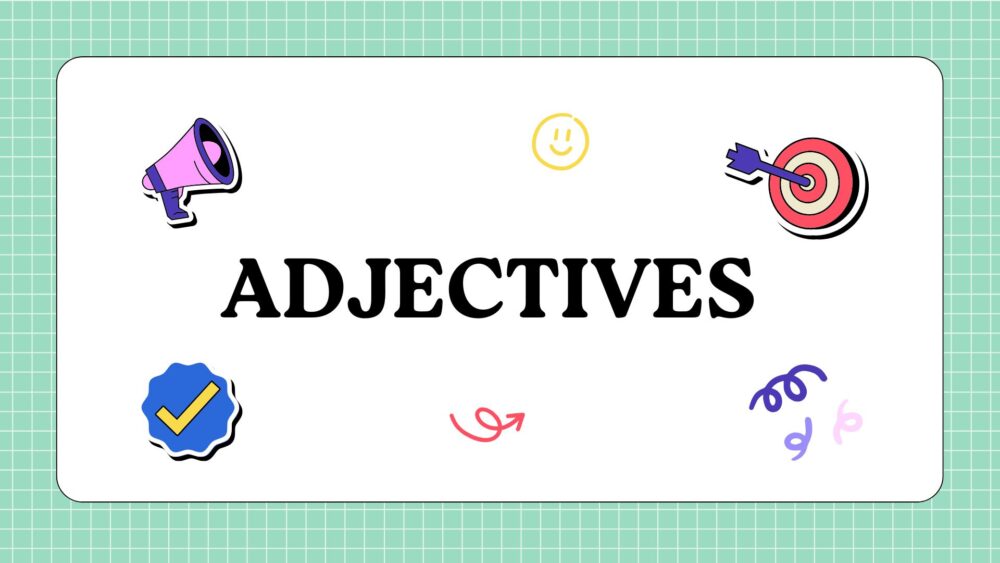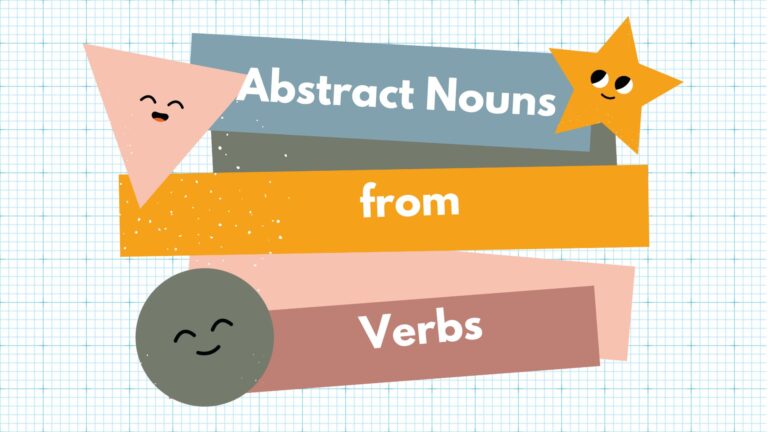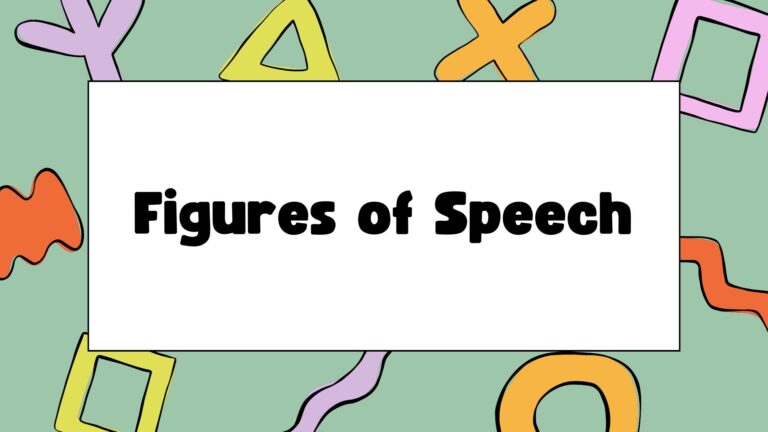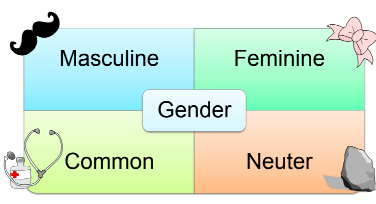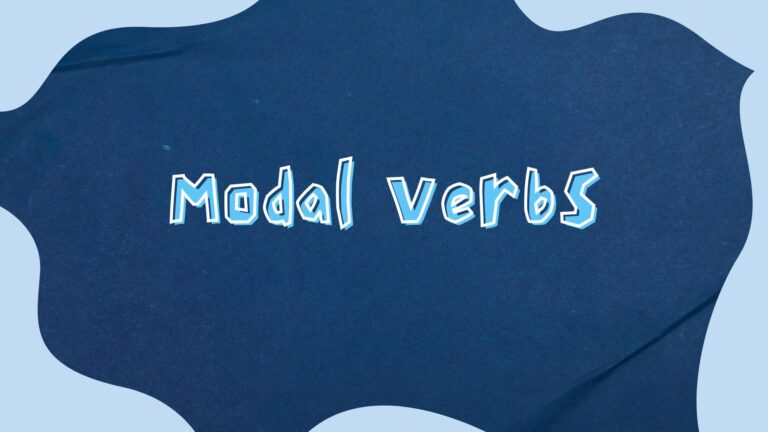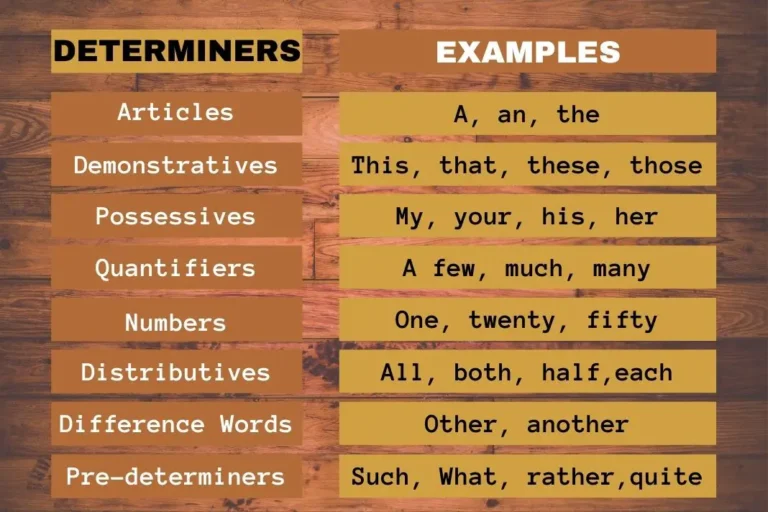150 Important Adjectives in English with Meanings
Enhance your English vocabulary with 150 important adjectives. Learn their meanings to improve your speaking and writing skills easily.
Introduction of Adjectives:
Adjectives are words that describe nouns or pronouns. They tell us characteristics about people, places, and things such as their color, size, shape, feelings, and more.
150 Adjectives List
Here’s a list of 150 essential adjectives with meaning to help you improve your vocabulary.
Beautiful: Very attractive
Brave: Courageous
Clever: Smart thinking
Calm: Peaceful, not excited
Friendly: Kind and helpful.
Generous: Willing to give
Happy: Feeling good
Honest: Tells the truth
Kind: Gentle and nice
Neat: Clean and tidy
Polite: Well-mannered
Smart: Intelligent
Strong: Powerful
Sweet: Pleasant or sugary
Warm: Slightly hot
Angry: Feeling mad
Bitter: Feeling hurt
Boring: Not interesting
Cruel: Mean and hurtful
Dangerous: Likely to cause harm
Dirty: Not clean
Greedy: Wanting too much
Lazy: Doesn’t like to work
Loud: Noisy
Mean: Unkind
Rude: Not polite
Sad: Feeling unhappy
Ugly: Not attractive
Weak: Not strong
Worried: Feeling concern
Big: Large in size
Small: Little in size
Huge: Very large
Tiny: Very small
Tall: Of great height
Short: Not tall
Wide: Broad
Narrow: Not wide
Long: Having great length
Thick: Wide in size
Round: Circular shape
Flat: Without curves
Curly: Having curls
Straight: Not curved
Thin: Slim
Attractive: Good-looking
Handsome: Good-looking (for men)
Elegant: Graceful
Messy: Untidy
Clean: Not dirty
Excited: Very happy
Tired: Feeling need for rest
Nervous: Worried or afraid
Proud: Feeling pleased
Jealous: Feeling envy
Confident: Self-assured
Scared: Afraid
Lonely: Feeling alone
Hopeful: Full of hope
Angry: Feeling upset
Early: Before expected time
Late: After expected time
New: Recently made
Old: Aged or things that are used for long time
Fast: Quick speed
Slow: Not fast
Temporary: Not permanent
Permanent: Lasting forever
Hot: High temperature
Cold: Low temperature
Many: A large number
Few: A small number
Several: More than two
All: Every one of something
Some: Not all
No: Not any
Much: A large amount
Little: A small amount
Numerous: In large quantity
Enough: As much as needed
Busy: Having a lot to do
Interesting: Holding attention
Funny: Causing laughter
Difficult: Not easy
Easy: Not hard
Powerful: Very strong
Helpful: Ready to help
Quiet: Not noisy
Safe: Not dangerous
Delicious: Tastes good
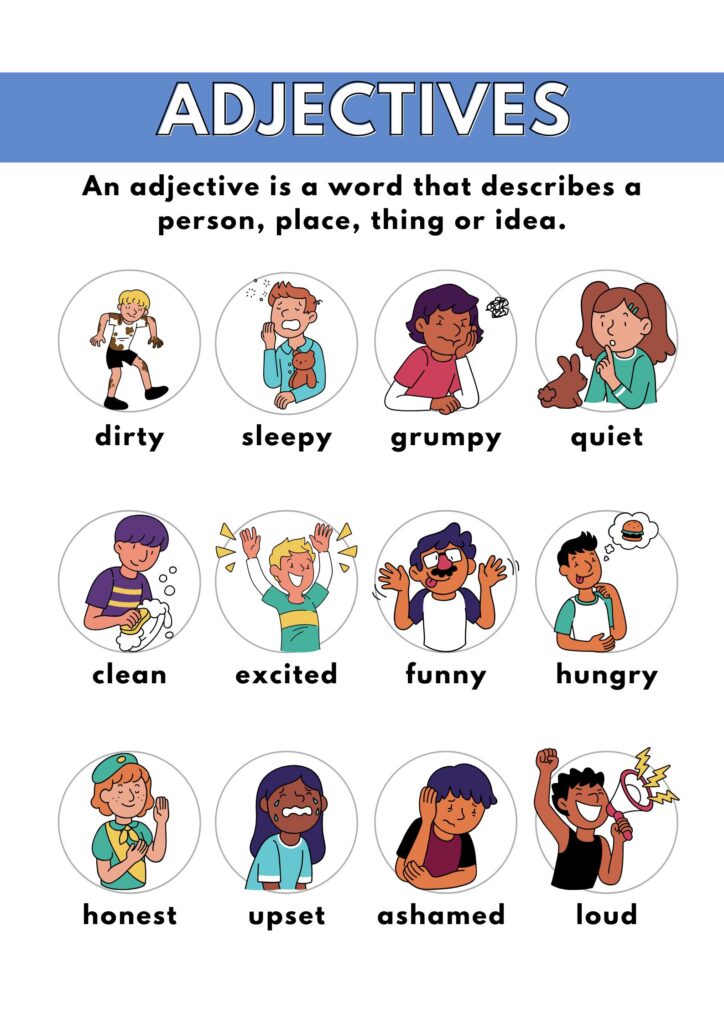
100 Idioms about Health: Definitions of Health Idioms
Homophones: Sentences That Sound the Same
What are the main types of adjectives?
- Descriptive: describe qualities or states
happy, large, old - Quantitative: indicate quantity or amount
– some, three, many - Demonstrative: point out specific items
this, those, that - Possessive: show ownership
my, their, our - Interrogative: used in questions
which, what, whose - Proper: derived from proper nouns
Japanese, Shakespearean - Distributive: refers to members of a group separately
each, every, either
Can adjectives be used as nouns?
Yes, when you use an adjective with “the,” it can stand in for a noun to refer to a group.
the poor, the young, the unknown
Can a word be both an adjective and another part of speech?
Yes. Many adjectives can also function as nouns or verbs depending on context.
- Adjective: “The poor child needed help.”
- Noun: “The government helps the poor.”
- Verb: “He will better his score next time.”

